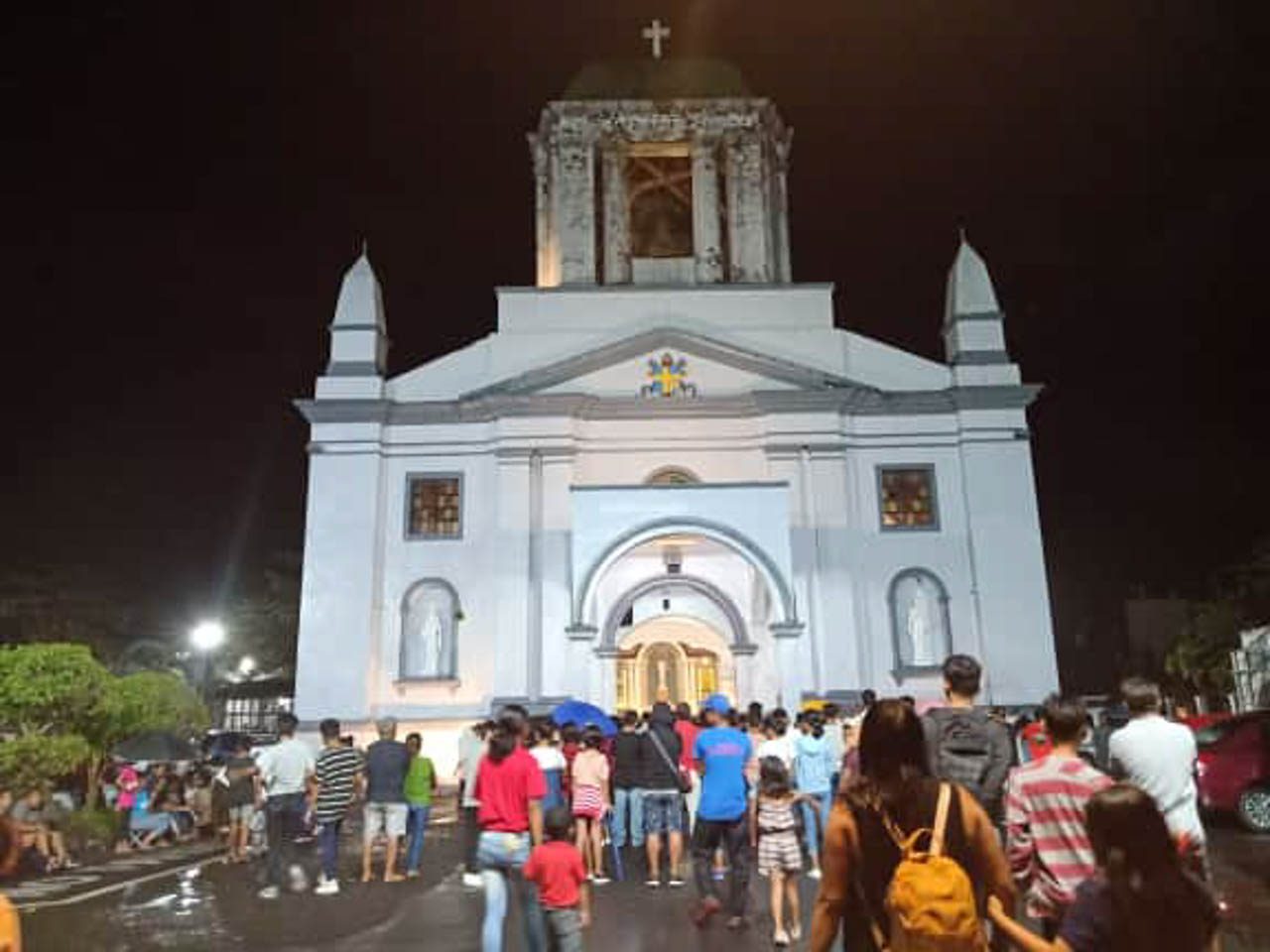SUMMARY
This is AI generated summarization, which may have errors. For context, always refer to the full article.

LEGAZPI CITY, Philippines – On the first day of Simbang Gabi, Bishop Joel “Bong” Z. Baylon of the Diocese of Legazpi told the parishioners of Albay to see the image of God and his love in the lives of the indigenous peoples (IPs).
The prelate led the first mass of Simbang Gabi on Monday, December 16, at the St Gregory the Great Cathedral, where thousands of parishioners thronged despite the rain as well as the darkness that has engulfed the province, specifically Legazpi, for two weeks now.
Albay remains powerless in the aftermath of Typhoon Tisoy despite the 24/7 working hours of linemen of the National Grid Corporation of the Philippines and the Albay Power Energy Corporation.
In his homily, the prelate focused on the plight of the IPs residing in the municipalities of Sto Domingo and Tiwi.
He urged the parishioners to stand up for IPs in need, especially those affected by Tisoy. Many IPs were left homeless after Tisoy battered the Bicol region. (READ: Pope Francis leads Simbang Gabi: ‘Be smugglers of faith’)
As of April 2016, there are 48,743 registered IPs across the Bicol region. The Agta tribal communities in Bicol are subdivided into several subtribes such as Agta-Tabangon, Agta-Cimaron, Agta Taboy, Dumagat and the Kabihug of Camarines Norte.
Among the six provinces of Bicol, Camarines Sur has the biggest number of tribal communities with 4,799 families (26,199 IPs), followed by Sorsogon with 2,231 families (12,127 IPs), Albay with 1,229 families (6,947 IPs), and Camarines Norte with 774 families (3,470 IPs).
The tribesmen in Bicol are among the 2.2 million Bicolanos belonging to poorest of the poor, according to a 2015 census of the Philippine Statistics Authority.
Aside from poverty, IPs in the region also face other issues such as discrimination and lack of access to basic services, livelihood, and health care. – Rappler.com
Add a comment
How does this make you feel?
There are no comments yet. Add your comment to start the conversation.